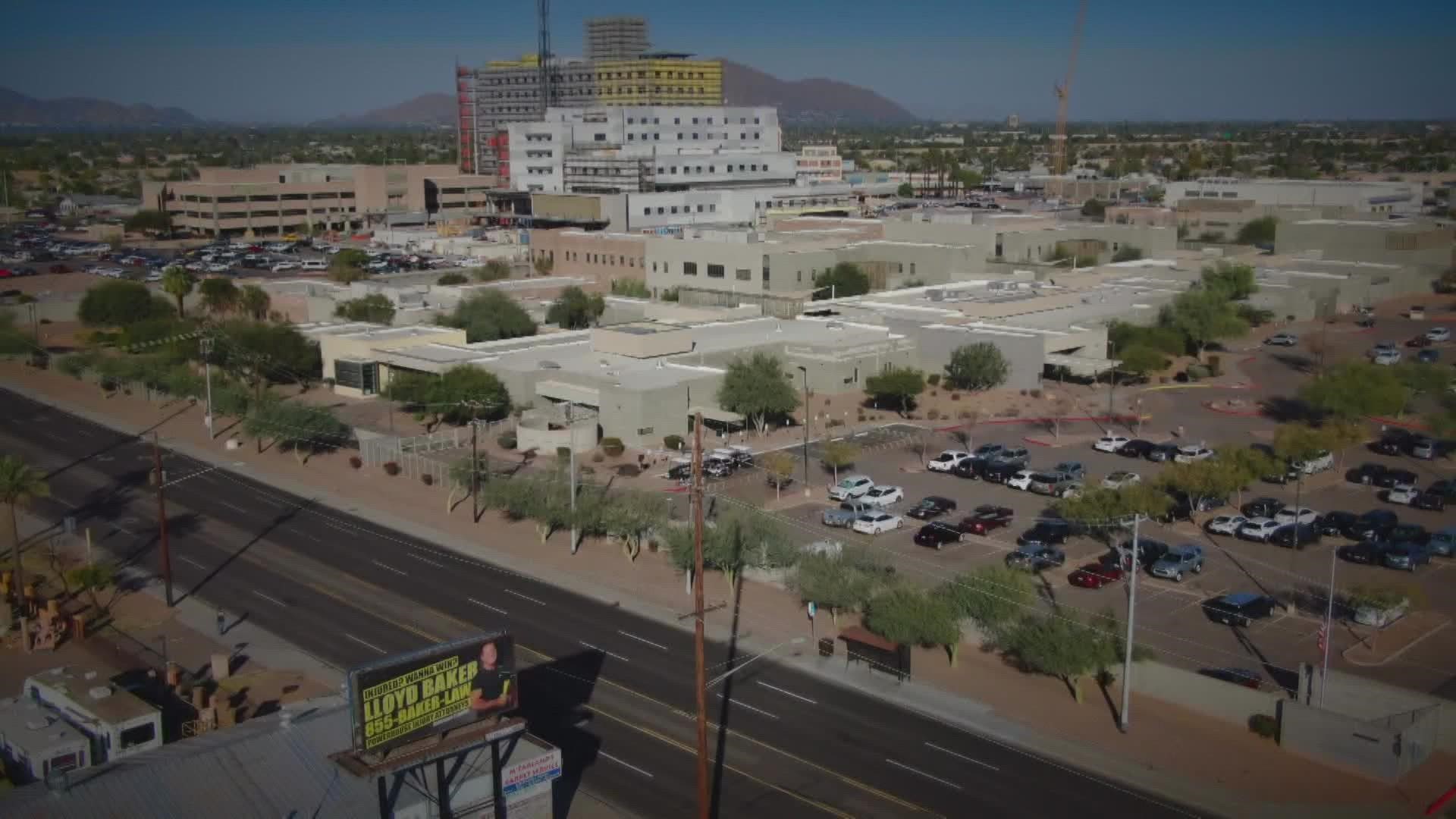ARIZONA, USA — New year, new law.
Next year, Arizona's court systems will absorb all Guilty Except Insane cases after a law signed in 2021 did away with the Board starting in 2023.
Starting in January, judges in Maricopa and Pima counties will take the place of the Psychiatric Security Review Board, or PSRB. The PSRB was once a five-person state Board tasked with overseeing anyone in Arizona found Guilty Except Insane.
Those people were all convicted of violent crimes and sentenced to the state hospital for treatment, and it was up to the Board to decide if they could get out early to live in the community on supervised release. Under the new law, that decision will be up to a judge.
"The intention of both the courts that we'll be managing these cases is to have judges that have experienced in this area," said Donald Jacobson, Senior Special Projects Consultant with the state's Administrative Office of the Courts.
History of the PSRB
The Psychiatric Security Review Board was formed in 1994 when the state's guilty except insane law went into effect.
The Board was tasked with monitoring the state's guilty except insane population, which is made up of people who have committed violent crimes, like murder or aggravated assault, and are sentenced to the state psychiatric hospital for treatment.
State data from 2021 shows the Board oversees 114 people, 100 at the state hospital and 14 living in the community. The Board was supposed to meet each month to routinely review each person's case or to make decisions about whether a person could be released to the community.
A new law passed in 2021 did away with one of the Board members, and by the end of January 2022, two other members resigned, and the Board couldn't establish a quorum to meet.
Governor Doug Ducey's Office told 12News it was working to appoint new members but ultimately never filled the vacancies.
The Board posted a bulletin indicating that meetings would be canceled going forward. Online records show the PSRB only met once in 2022 instead of monthly as it should have.
Gilbert group home killing
The Board came under scrutiny in 2021 in the wake of an April 2021 Gilbert group home killing, when resident Christopher Lambeth, who was under the Board’s watch, was accused of murdering housemate Steven Howells.
Lambeth had been under the Board's watch since he was determined to be guilty except insane in 2007 after murdering his grandparents at their home outside of Tucson two years prior.
With the guilty except insane plea, Lambeth was sentenced to 25 years to life in the Arizona State Hospital for treatment. But he was ultimately released by the PSRB to live in the community in 2016, less than ten years into his sentence.
The Board declined to comment on Lambeth's release and decision to allow him to live in the community.
Transition to courts
Judges used to hear these cases before 1994, but it's nearly 30 years since they've heard this type of case in court amid the creation of the PSRB.
Maricopa and Pima County Superior Courts won't have jurisdiction over these cases until January 1, 2023, which is when hearings can start being scheduled in these cases. Jacobson says these cases will be filed as mental health cases with priority on cases with expiration dates early next year, followed by cases of those living in the community.
"If an individual is decompensating in the community, then that has to be brought to the Court's attention immediately," he said. "So it is it is put on those care providers to notify the court, should there any issues and the court to take action or to bring them back into the hospital."
Similar to the PSRB, these cases will require regular check-ins by the judge, but it will be up to the parties in the case, like prosecutors or the defense team, to request a hearing.
Jacobson said various parties should be involved in the hearings, including routine check-ins can be scheduled once every 20 months, but any requests for changes to plans or privileges to go into the community could be scheduled based on a case-by-case basis. It's expected that prosecutors, defendants, and their teams, as well as Arizona State Hospital staff, represented by the Attorney General's Office, will be involved in each hearing.
Jacobson detailed that it would be up to prosecutors in each case to notify victims about any upcoming hearings.
12News is waiting to hear back from MCAO on whether prosecutors in the county handling these cases are prepared to notify victims.
"There's gonna be a lot of entities bringing information before for the court to help them have a rounded view of how this decision would impact the individual, their ongoing treatment, the victim, the community," Jacobson said. "All those things will be taken into account."
Several lawmakers and advocates applauded the decision to move these cases to court, but not everyone is happy with the move, including the PSRB's former Chairman, Dr. James Clark.
In his resignation letter this year, he questioned whether judges would be prepared to take on complex cases before deciding on community release.
The courts expect to take in about 100 cases between Maricopa and Pima Counties. Jacobson said the cases are pretty evenly split up between the counties.
"We have actual concerns about that as we are looking at these cases as an additional workload, but we think we can absorb them initially," he shared.
Jacobson said they’re hoping to secure funding for this to consolidate all these cases to dedicated judges and judicial staff, but so far, this is not something the legislature has in the budget.
Up to Speed
Catch up on the latest news and stories on the 12News YouTube channel. Subscribe today.

